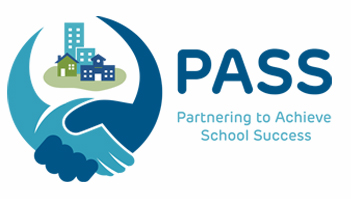HOW CAN WE HELP YOU? Call 1-800-TRY-CHOP
In This Section
Breaking the Stigma: Delivering ADHD Treatment Within Primary Care

In the PASS study, researchers are evaluating enhanced behavior therapy administered in the primary care setting to children with ADHD.
Researchers at Children’s Hospital of Philadelphia are studying ways to make behavior therapy more accessible for children with attention-deficit/hyperactivity disorder (ADHD) who may face barriers to receiving treatment, such as those living in lower-income families. The purpose of the study, which is funded by the Patient-Centered Outcomes Research Institute (PCORI), is to improve access to high-quality services by providing services integrated into primary care.
Jennifer Mautone, PhD, ABPP, and Thomas Power, PhD, ABPP, are leading a study to compare two ways of offering behavior therapy. The first is through a program called Partnering to Achieve School Success (PASS), in which enhanced behavior therapy is offered through primary care. Enhancements include access to a community health partner to support family engagement in care, and implementation of strategies plus supervision with performance feedback for clinicians. The second way is usual primary care, which includes access to the Healthy Minds, Healthy Kids program, if needed. Healthy Minds, Healthy Kids is the integrated behavioral health in primary care program at CHOP.
Dr. Mautone is a faculty member of PolicyLab at CHOP and the Perelman School of Medicine at the University of Pennsylvania, associate director of Psychosocial Research in Primary Care in the Department of Child and Adolescent Psychiatry and Behavioral Sciences at CHOP, and clinical director of the Healthy Minds, Healthy Kids program. Dr. Power is chief psychologist in the Department of Child and Adolescent Psychiatry and Behavioral Sciences at CHOP, director of the Center for Management of ADHD at CHOP, and also faculty at the Perelman School of Medicine at Penn. Both doctors spoke with us about the study.
Why is this research project important to tackle?
Dr. Power: In general, children with behavioral health needs face challenges getting access to services, particularly services that are high-quality and evidence-based. Children who live in low-income families have particular difficulties getting access to appropriate and effective behavioral health services for all conditions, including ADHD. One of the main purposes of this study is to address the disparities in access to high-quality mental healthcare for those children with behavioral health needs. We have targeted five CHOP practices: four in the inner city, and one on the outskirts of the city. They are the practices that tend to have the highest Medicaid populations.
Dr. Mautone: From the provider standpoint, there are a couple of different categories of barriers. Some are logistic in nature, some are financial in nature, and some are related to beliefs and perceptions of families or the public.
Some of the logistic challenges include a substantial shortage of child- and adolescent-focused behavioral health providers in this country. Finding a person who has availability to see a child (for ADHD evaluation) is really difficult.
An example on the financial side is that once you do find a provider, many times providers do not participate in insurance networks. Families are faced with substantial financial barriers: not being able to rely on their health insurance and having to pay high out-of-pocket expenses, which is not manageable or feasible for most families.
From a belief standpoint, there’s still a tremendous stigma around behavioral health treatment and behavior health conditions. For families who are facing a behavioral health challenge for their child, they have concerns about how they may be viewed, how their child may be viewed, how taking a child to a community mental health agency is viewed, or how it feels for the family. Many times, they don’t want to go because of some of these stigma-related challenges.
That’s where being in a primary care practice and being able to capitalize on the trusted relationship that the family has with primary care can help break down some of that stigma. We find, as the Healthy Minds, Healthy Kids integrated primary care service here at CHOP — which is the clinical service through which this study is being offered — our behavioral health consultants automatically have a certain degree of credibility. Behavioral health treatment is also normalized to a large extent because we’re introduced to the family by the primary care provider. So we can help reduce that stigma barrier substantially to get families in more readily.
In what ways is this research proposal innovative?

Dr. Power: This is one of the only studies that is examining the effectiveness of interventions provided in primary care contexts for children diagnosed with ADHD. The intervention is innovative in that it has been adapted and tailored to address the needs of children and families who face the challenges of living in lower-income situations, which can include prolonged exposure to stress and increased likelihood of experiencing trauma (at least one trauma but oftentimes multiple traumas), and challenges overcoming barriers to getting access to care.
We built into the intervention components to promote an ongoing engagement in care, helping families to overcome barriers, helping families to cope with the stresses that they experience, and acknowledging the traumas or multiple traumas that they may be facing in their lives. Typical behavioral interventions for ADHD don’t include engagement enhancements and components designed to address the kind of stress and trauma that families experience. So we’ve infused the intervention with those components.
Dr. Mautone: The other thing that we do in our work is have an explicit focus on building collaborative relationships between schools and families. Many times, behavioral interventions focus on addressing child behavior and impairment in the home environment, and then there are separate and parallel interventions delivered at school to support the child.
In all of our work, we think about how to coordinate the efforts across those systems of care. For families in this study who may have experienced many years of challenge in terms of supporting their child’s education, we help them think about how to build a collaborative relationship with the child’s teacher and the child’s school to ensure consistency and coordination across the home and school environments. That’s another innovation.
Why is this project a good fit for PCORI to support?
Dr. Power: One of the most significant reasons is because we have a service delivery system in place for providing integrated services in the context of primary care. The Healthy Minds, Healthy Kids program is expanding and is now present in the practices that we’re targeting, which are practices that have a relatively high proportion of children living in low-income families. We’re able to take advantage of that service delivery system and to build on the infrastructure that was created by the institution through a partnership between the department of Child and Adolescent Psychiatry and Behavioral Sciences, the Department of Pediatrics, the CHOP Care Network, and the Research Institute.
With PCORI grants, unlike the grants from the National Institutes of Health, you are expected to conduct research in the context of clinical practice, using clinicians to actually provide care under typical clinical conditions, including billing for services. PCORI wants you to use providers who are embedded within the service and sustained on funds other than the contract.
Dr. Mautone: Because PCORI is so focused on evaluation of real clinical care and patient services, with Healthy Minds, Healthy Kids in place, CHOP is uniquely situated to be able to do this research. It’s much more authentic, I think, in the use of real resources.
PCORI has a strong emphasis on stakeholder participation in research. How does this project emphasize stakeholder participation?
Dr. Mautone: For years, Tom and I have done community-based participatory research, and PCORI takes that stakeholder engagement piece to a whole new level. Even before we worked with PCORI, we had stakeholders engaged in the growth and development of Healthy Minds, Healthy Kids. We were able to utilize those stakeholders’ input and also other relationships that we already had with key opinion leaders in the institution to build our stakeholder engagement plan.
That’s actually, for me, one of the things that I’m most proud of – the extent to which we’ve built a solid stakeholder engagement plan and a stakeholder team that is actively involved in informing the delivery of the service and the implementation of the study. It’s been fun to get that going. I’ve learned a lot already from our stakeholders about how to conduct patient-centered research.
How are patients and families involved as stakeholders in this project?
Dr. Mautone: We have two parent co-investigators on the study leadership team. And then several other parents are part of the stakeholder advisory group. The parent co-investigators participate in our biweekly leadership team meetings; they’re involved in decision-making around study design questions and carrying out the study. They represent the voice of the patients and families who will be participating in the project. They are key partners in the project.
Dr. Power: We have several individuals who represent families. Most of them are parents. One of them is a grandparent. Another is the head of a family advocacy organization. And two of those parents serve on the nine-member leadership team, as Jen mentioned. They are at the table making important decisions about how the project is going to be conducted, and then many other parents are advising us about how to address challenges that we face in the study. Their participation is really quite extraordinary.
We also have educators as stakeholders because we are using an intervention that involves working with the school and collecting data from the school to evaluate outcomes. And we have pediatric primary care providers who are major stakeholders. A behavioral health clinician is on the leadership team, and Healthy Minds, Healthy Kids clinicians are also stakeholders. And then, of course, the researchers are stakeholders along with parents, educators, and clinicians. It’s a real partnership.
For more information about the PASS study, visit PolicyLab's website.


